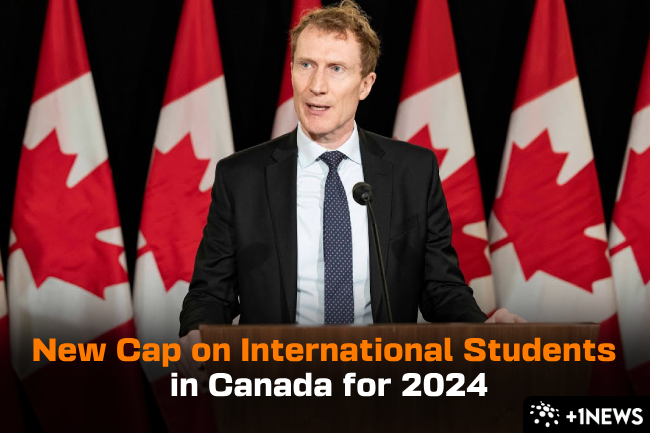Today, Immigration Minister Marc Miller announced that the Canadian government will set an intake cap on international student permit applications for the next two years. This is to control and steady the growth during this time.
The cap on international students means that Canada plans to accept around 360,000 foreign students annually in 2024 and 2025.
Starting from January 1, 2024, the cost of living requirement for study visa applicants was adjusted to better reflect the actual living costs in Canada. The aim is to protect students from vulnerabilities and exploitation.
In 2024, the new cap will allow approximately 360,000 approved study permits, which is a 35% reduction compared to 2023. The government is also planning to create clear pathways to permanent residency for students with valuable skills and explore ways to help international students smoothly enter the job market.
To ensure fairness, there will be population-based caps on specific provinces and territories. This will significantly reduce the number of overseas students in regions facing unsustainable increases in their student populations.
Jump to:
Official Announcement Of Cap on International Students in Canada 2024
Unaffected Categories
It’s important to note that renewals of study permits will not be affected, and the cap excludes those pursuing master’s and doctorate degrees, as well as those in elementary and secondary education.
Current study permit holders will also remain unaffected.
The Immigration, Refugees and Citizenship Canada (IRCC) will distribute a portion of the cap to each province and territory, which will then allocate it among the approved educational institutions.
Starting January 22, 2024, each study permit application must include an attestation letter from a province or territory to enforce the cap. Provinces and territories are required to establish a process for providing attestation letters to students by March 31, 2024.
The number of new study permit applications to be approved in 2025 will be reconsidered at the end of this temporary two-year measure.
During this period, the Canadian government will collaborate with educational institutions, national stakeholders, and provinces and territories to ensure a sustainable future for international students.
This involves developing a framework for recognized institutions, determining a sustainable number of international students for the long term, and ensuring post-secondary institutions can accommodate them.
Changes in Post-Graduation Work Permit Program
The eligibility requirements for the Post-Graduation Work Permit Program are being adjusted. From September 1, 2024, international students in programs covered by curriculum licensing arrangements won’t qualify for a post-graduation work permit.
This change aims to address the loophole where students attending private colleges could obtain work permits more easily.
Graduates of master’s and other short graduate-level programs will soon be eligible for a three-year work permit, allowing them better opportunities for work experience and potential transition to permanent residency.
Changes in Spousal Work Visa Eligibility
In the upcoming weeks, only spouses of foreign students enrolled in master’s and doctoral programs will be eligible for open work visas. Spouses of students at other education levels will no longer qualify.
Problems with the system’s integrity
Immigration Minister Marc Miller had been talking about a potential measure since summer 2023, and he brought it up again in a December statement. He stated, “Before the September 2024 semester, we’re ready to do what it takes, like limiting visas, to make sure that schools provide enough support for students as part of their education.”
In a recent interview with CTV news, he mentioned that he would be announcing measures for temporary residents, especially international students, in the first quarter of this year.
There’s been increasing pressure on the IRCC to address the number of international students in Canada. The minister pointed out that the high volume of students is causing problems for the system. In the CTV interview, he mentioned that some institutions have people from other countries paying a lot for their education but not getting what was promised.
According to the latest IRCC release, “some institutions have significantly increased their student numbers to make more money, and more students are coming to Canada without the necessary support to succeed.” It also mentions that the rapid increase in international students is putting pressure on housing, healthcare, and other services in Canada.














